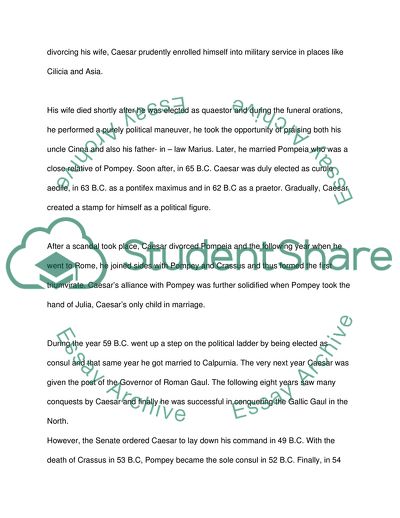Cite this document
(The Cross of the Rubicon River Essay Example | Topics and Well Written Essays - 3500 words, n.d.)
The Cross of the Rubicon River Essay Example | Topics and Well Written Essays - 3500 words. https://studentshare.org/history/1717012-how-did-the-cross-of-the-rubicon-river-by-julius-caesar-have-immediate-political-social-economic-territorial-and-military-consequences-on-the-roman-empire
The Cross of the Rubicon River Essay Example | Topics and Well Written Essays - 3500 words. https://studentshare.org/history/1717012-how-did-the-cross-of-the-rubicon-river-by-julius-caesar-have-immediate-political-social-economic-territorial-and-military-consequences-on-the-roman-empire
(The Cross of the Rubicon River Essay Example | Topics and Well Written Essays - 3500 Words)
The Cross of the Rubicon River Essay Example | Topics and Well Written Essays - 3500 Words. https://studentshare.org/history/1717012-how-did-the-cross-of-the-rubicon-river-by-julius-caesar-have-immediate-political-social-economic-territorial-and-military-consequences-on-the-roman-empire.
The Cross of the Rubicon River Essay Example | Topics and Well Written Essays - 3500 Words. https://studentshare.org/history/1717012-how-did-the-cross-of-the-rubicon-river-by-julius-caesar-have-immediate-political-social-economic-territorial-and-military-consequences-on-the-roman-empire.
“The Cross of the Rubicon River Essay Example | Topics and Well Written Essays - 3500 Words”. https://studentshare.org/history/1717012-how-did-the-cross-of-the-rubicon-river-by-julius-caesar-have-immediate-political-social-economic-territorial-and-military-consequences-on-the-roman-empire.


